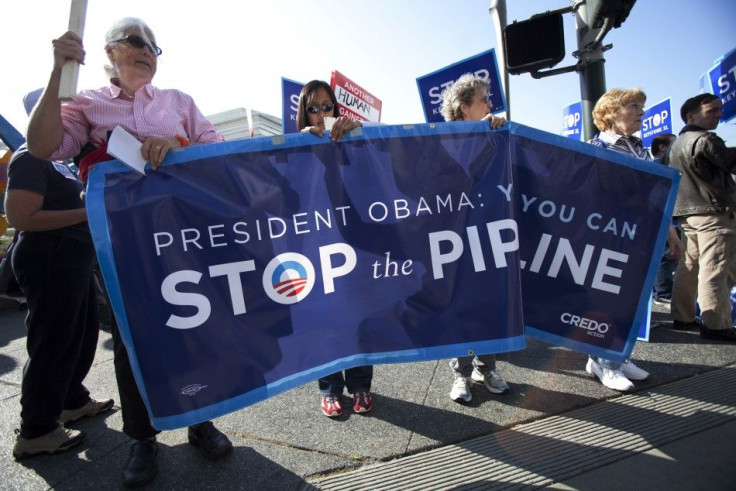Keystone Pipeline Rejected, API Slams President's Decision

American Petroleum Institute President Jack Gerrard, the head of the largest energy industry trade group in the U.S., on Wednesday lambasted President Barack Obama's decision to cancel the Keystone XL Pipeline.
Charging the president caved in to political pressure, Gerrard questioned Obama's commitment to job creation in canceling the 1,700-mile pipeline, a project that would create thousands of new jobs, he said.
This decision is a clear abdication of presidential leadership, said Gerrard, adding the pipeline is essential to the nation's energy future and security.
Gerrard spoke during a teleconference in response to the administration's decision to reject the controversial pipeline.
In a statement the president released Wednesday explaining his decision to cancel the pipeline, the president blamed Republicans for imposing a deadline -- essentially forcing his hand.
This announcement is not a judgment on the merits of the pipeline, but the arbitrary nature of a deadline that prevented the State Department from gathering the information necessary to approve the project and protect the American people, the president wrote. I'm disappointed that Republicans in Congress forced this decision, but it does not change my Administration's commitment to American-made energy that creates jobs and reduces our dependence on oil.
The president faced a Feb. 21 deadline to declare the pipeline in the national interest, which the State Department said was too little time to pronounce the project safe and worthy of approval. The government has been studying the proposal since 2008.
The State Department said it could have had its review and assessments concluded and been ready for a final decision by the end of the first quarter of 2013, which was agreed upon by TransCanada, the company trying to build the pipeline and the State of Nebraska, which due to its environmentally sensitive lands, was at the front lines of the pipeline debate.
The Department's denial of the permit application does not preclude any subsequent permit application or applications for similar projects, read a statement released by the State Department.
In November, Nebraska's governor signed legislation that would have rerouted the pipeline away from the state's Sand Hills region, which environmentalists were concerned would be damaged in the event the pipeline failed.
The president's decision has already proved to be an unpopular one, and Gerrard suspects the decision will likely become a lingering election topic throughout the rest of the year.
The score is Job-Killers, two; American workers, zero. We are completely and totally disappointed. This is politics at its worst, Laborers' International Union of North America General President Terry O'Sullivan said. Once again the president has sided with environmentalists instead of blue-collar construction workers - even though environmental concerns were more than adequately addressed. Blue-collar construction workers across the U.S. will not forget this.
Environmental group Tar Sands Action, which has opposed the pipeline, called the president's decision a brave call.
© Copyright IBTimes 2025. All rights reserved.





















